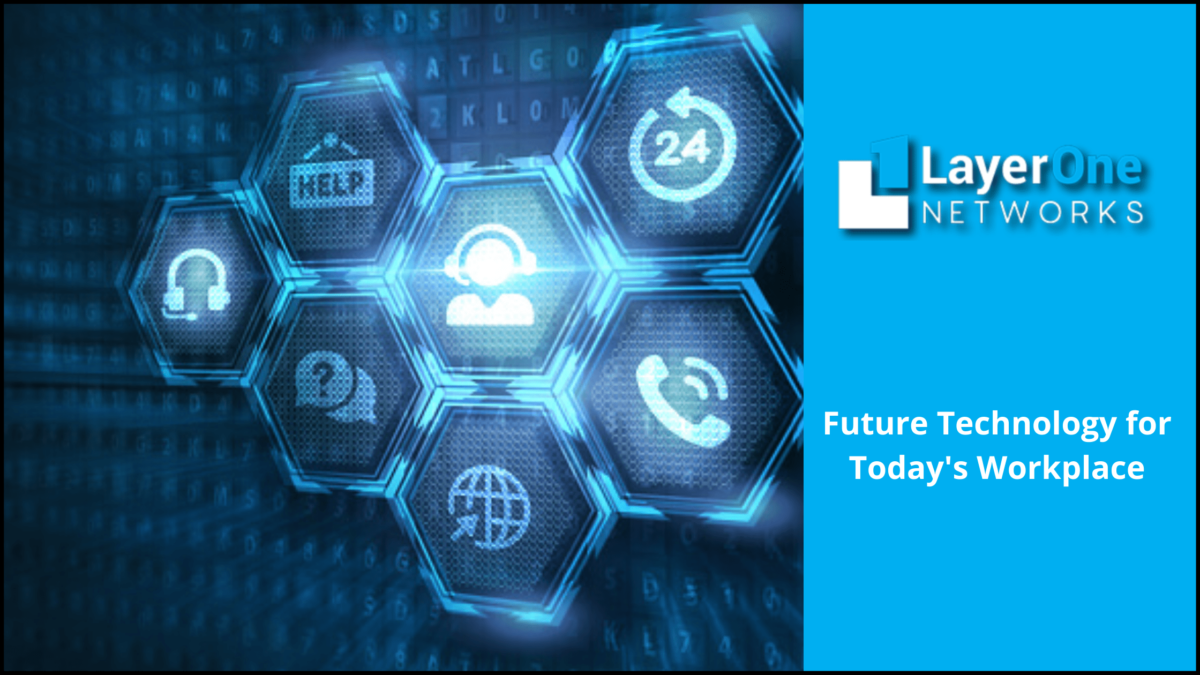The workplace is constantly evolving, and technology plays an increasingly important role. As we move into the future, it’s important to stay ahead of the curve and adopt new technologies that can improve productivity, communication, and collaboration within our organizations.
The tech industry is constantly innovating with managed cloud solutions, artificial intelligence (AI), the Internet of Things (IoT), and more. As these new technologies emerge, businesses must evaluate how they can be integrated into their workplace to improve efficiency and competitiveness.
Explore some potential technology that could shape the future workplace
Artificial Intelligence
AI (Artificial intelligence) is the most talked-about technology of the moment. And it’s no wonder, as AI has the potential to revolutionize the way we work. More intelligent technology can automate repetitive tasks, freeing employees to focus on higher-level work. AI can also help improve decision-making by providing data-driven insights.
There are AI-fueled tools available now that can boost productivity in the workplace. For example, Google’s AI-powered assistant can book meeting rooms, schedule appointments, and even order office supplies. But the fact is that these applications have not yielded a significant return on investment yet. Small businesses may not be ready to implement AI just yet, but it’s certainly something to keep an eye on for the future.
AI can provide you with significant productivity growth, but it needs considerable investment to make it happen. You need to determine where it fits your business and what processes you can automate. Some of the applications you might want to use for your business are ChatBot, which can take care of customer queries, or cybersecurity tools that can help you keep your data safe. IT consulting firms can help you map out a plan to adopt AI into your business.
Internet of Things
The Internet of Things (IoT) is another game-changing technology that is beginning to make its way into the workplace. It is used to connect devices and appliances to the internet so that they can communicate with each other and be controlled remotely.
Businesses can use it for various purposes, be it a barcode scanner or sensor in a production line to track inventory or a thermostat that can be controlled remotely to save energy. IoT can be used for security purposes, such as setting up cameras that can be monitored remotely. It is awaited to rise exponentially in the next few years to 50 billion devices by 2025.
The connectivity is one of the greatest strengths of these devices, but it’s also the source of potential security vulnerabilities. As more devices are linked to the internet, there is an increased risk of data breaches and cyber-attacks. You need to invest in data security services to use IoT to your benefit.
Cloud Computing
Cloud computing is technology that is changing the way businesses operate. It refers to storing and accessing data and applications over the internet rather than on a local server.
Cloud computing has many advantages for businesses. It is scalable, so companies only pay for the storage and computing power they need. It is also more reliable than on-premises servers, as data is stored remotely and can be accessed from anywhere.
With managed cloud services, businesses can offload the management of their IT infrastructure to a third-party provider. This frees up internal resources and allows businesses to focus on their core operations. Also, it is cost-effective as you only pay for what you use.
You need to consider the type of data you are storing in the cloud and its importance to your business. You also need to ensure that your data is secure and that you have a backup plan in place.
5G
5G is the leading edge of mobile technology, and it is set to revolutionize the way we connect to the internet. 5G provides faster speeds and reliable connections than 4G, ideal for data-intensive applications such as streaming video and gaming.
5G is in its early stages and is not widely available yet. But it is expected to roll out over the next few years and will eventually replace 4G as the standard for mobile connectivity.
When 5G is fully implemented, it will change the way businesses operate. For example, employees will be able to work remotely using virtual reality or augmented reality. 5G will also enable businesses to connect their devices and appliances to the internet, taking advantage of the Internet of Things. You need to keep an eye on 5G technology and how it develops, as it is set to change the way businesses operate.
Conclusion
Technology has revolutionized the workplace in today’s highly competitive economy. Enterprises around the globe are looking for new and innovative ways to stay ahead of the curve with the inclusion of AI, IoT and cloud computing in their business plans. As a result, technology is solving most of the issues that businesses face and is making the workplace more efficient. Involving IT consultant service providers to help you in the process will ensure a successful and smooth transition into the future of work.
What technology trends do you think will shape the workplace of tomorrow? Let us know in the comments below.


